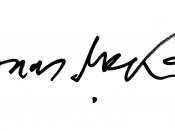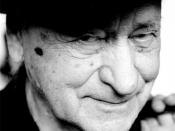The year begins with a magnificent series at Film Forum, "New Yawk New Wave"-kudos to the programmers, Bruce Goldstein and Jake Perlin, and to J. Hoberman, credited with the series concept and as its advisor-which highlights the artistic originality of independent filmmakers in New York in the fifties through the seventies. Its insightful selections offer a thesis: the epochal efflorescence of cinematic invention of the French New Wave that burst onto the scene in the late fifties and early sixties was matched-and, in some ways, foreshadowed by, and even influenced by-the burst of movie creativity from New York's independent filmmakers of the era, many of whom (including John Cassavetes, Martin Scorsese, Brian De Palma, Jonas Mekas, and Stanley Kubrick) rank among the most influential and important modern filmmakers. Expanding... And this is true, with an asterisk. The French New Wave filmmakers were inspired both by Italian neo-realism, particularly the films of Roberto Rossellini, and by Hollywood filmmakers, such as Alfred Hitchcock and Howard Hawks. Where New York's independents of the fifties, including Cassavetes, Lionel Rogosin, and Morris Engel and Ruth Orkin (whose "Little Fugitive," from 1953, will have a weeklong run in February), were mainly seeking an alternative to Hollywood filmmaking (America feeling, inevitably, like Hollywood's nation-sized company town), the young French directors, who started as critics at Cahiers du Cinéma, sought, in effect, to make Hollywood films in a self-conscious way-Hollywood in quotes, with the quotes being essential parts of the movies. (Stanley Kubrick, whose second feature, "Killer's Kiss," plays next Friday, is the conspicuous exception; he independently made Hollywood-style films from the start, but without the quotes.) It was New Yawk's second wave-its film-school generation, led by Scorsese and De Palma-whose neoclassical obsession with movie history led to the distinctive reinvigoration of studio-era genres... |
YAWKERS
More Drama
essays:
"All My Sons" by Arthur Miller
Review of the play The play titled All My Sons written by Arthur Miller seemed to be an ordinary story but in actuality held a deep hidden meaning. I feel that it was not rally on the surface, but once you analyze it more closely, it could be easily found. The author wrote the play in a sense that ...
"Fear of Public Speaking"
... to the stage and yells "STOP STOP", the other students acknoledge him and start waving to him) Mr. Swanson: Wait just a minute, Steve you have a big ... way and whispers) (Students ever once and a while poke their head out or wave) Teacher: Do me proud Lyle and don't get nervous Lyle(Nervous): OK Mr. ...
Modern Vs. Ancient
Modern Vs. Ancient 'We saw her lying: she had made a noose of her fine linen veil and hanged herself. Haimon lay beside her, his love lost under ground, crying out that his father had stolen her away from him.' Throughout history plays have evolved in many ways. For example, the theaters where ...
The Crusible
... heart changed to tell Elizabeth how he really felt about her. John really did love her. John Proctor 's aditude really did change form me, myself and I ... errors, not because he was picky, but his ennemis and competion were. John Proctor was always think out the final result of a situation, like when ...
Modern teater
Det moderna dramat 1800 - talets senare hälft Nordiska epokgörare Mot slutet av seklet dominerade naturalismen litteratur och drama i Europa. Naturalismen är en litterär rörelse som har fått sin beteckning av det franska ordet naturaliste, som betyder naturvetenskapsman. Den naturalistiske fö ...


